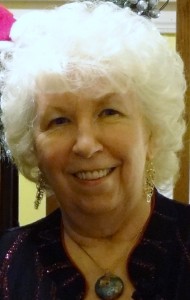(This column was published in The Daily News in Halifax, July 10, 1990)
We spent a recent weekend in Antigonish, attending the annual Topshee Conference. This year, the theme was Underdevelopment in Atlantic Canada; the format was, as usual, a keynote address, a panel discussion, plenary sessions interspersed with workshop groups, and a few social events.
“That sounds so interesting,” a friend of mine said, when I described it to her. “Why do they call it the Top Sheet Conference?” I suppose she thought I was leaving out the more risque parts in my description.
For others who might not know, the conference is named after Father George Topshee, a director for many years of the Coady International Institute. He is remembered as a simple, practical man who preferred working with people at the community level and the theme that runs through the conferences that bear his name is that ordinary people can make a difference – by understanding the issues, by working together, by learning methods of political action.
The official aims of the conferences are: to present facts relating to critical social and economic issues of the Atlantic Region; to enable people from all walks of life in the region to discuss those facts in terms of their own experience; to encourage follow-up action on the issues by a range of organizations.
Each conference is, according to the founding brochure, a place where difficult problems will be examined; a place where people of diverse economic and social backgrounds will confront problems together; a place where answers will be discovered through group study; a place where leaders will develop; and a place from which new directions for development will emerge.
I found it to be as good as its word. It was an extraordinarily stimulating weekend, attended by a great variety of people from many different backgrounds, all of whom seem to maintain the belief that it is possible to effect change from the bottom up. Only a cynic or a person who’s lost all hope could fail to have been heartened by the discussions and the commitment to a better life for all people, not for just a few.
In my group, we had a mathematician with a special interest in the environment, a federal civil servant with a particular interest in health care, an economist from Dalhousie University, a retired nun, a civil servant from Sri Lanka now at the Coady Institute, and a graduate student in women’s studies at the Mount. Our group leader was from the Extension Department of St. FX.
We found, both in our small groups and in the large sessions – and also listening to the speakers – that it was impossible to feel helpless and powerless when we were together in this way. It’s one of the reasons that many people go back year after year – to enjoy the reaffirmation of their own beliefs, to broaden their knowledge and experience, and to spend hours discussing issues with people of somewhat like mind.
Although the discussions were wide-ranging, they all had some connection with the underdevelopment theme – were often based on points raised by keynote speaker, economist Monica Townson. She presented the philosophies of several different types of economists and their views on underdevelopment: those who believe that underdevelopment is the result of deficiencies in the region itself; those who attribute underdevelopment to interference by government into the free market system; those who view underdevelopment as the inevitable result of capitalism.
We talked about what possibility there could be of full employment, and whether Atlantic Canadians should simply be expected to pack up and move to Ontario when support systems for industries are removed or when the use of resources is bungled.
“People cannot just be moved around like pawns on a chess board,” said Townson, “without regard for their families, their communities and their roots in the region. If we want to establish a society worth living in, we must establish that the preservation of people, of human values, communities and a way of life are worthy objectives in themselves.”
The conference didn’t satisfy every participant in every way. Some people felt that the concerns of organized labour were not as much in evidence as they should be. Others thought that unless issues surrounding the environment are dealt with, all the rest is just academic. Still others believed that the discussions were worthwhile but how would the ideas be translated to political action?
I was not so worried about the final point. In many ways, the conference reminded me of my early days in the feminist movement when discussion was seen to be valuable for its own sake. It was called consciousness-raising and it led to political action of many kinds. I have no reason to believe that things will be different for the participants in the Topshee conference.


